Christian Music. (Part 1 of 2)
Breakaway Magazine, Cornerstone Music Festival, and screaming for Jesus
“People knock religion because it's responsible for all these wars and stuff, but they forget it's also responsible for a lot of terrible music.”
- Demetri Martin
In the mid-nineteen-hundred-nineties, the mark of God's chosen people wasn't circumcision or a love for one another, but rather cleverly worded t-shirts. These articles of clothing appeared to be made by Calvin Klein, but upon closer inspection read "Christ is King." Being "in the world, but not of the world" meant that everything in Christian culture should look identical to the secular all around us— but a more positive, encouraging, family-friendly version. There were no problems with the latest fashions, movies, or literature— it just needed a little Jesus flavored seasoning sprinkled on top. If we snuck in a wholesome message like a mom hiding blended vegetables in a soup, the world will get that nutrition naturally without even realizing that they were eating something healthy for them. Something that they would normally find repulsive.
But these vegetables couldn't be found in just any grocery store. They needed their own specialty marketplace, where shoppers could browse without having to worry they would accidentally buy a spoiled fruit. A place where the selection had been carefully curated already by experts in the field, experts that lived in Colorado Springs and had their own radio programs. Experts that had already done all the thinking for us so we didn't have to do it ourselves. Places like Chapel Christian Bookstore in my hometown of Grand Island, Nebraska. As a guilt-stricken teenager wanting to buy CDs, I spent a lot of time in Chapel Christian Bookstore.
For as long as people have believed in God, they have sung songs about it. The Old and New Testaments are full of examples. Much of the books resemble a Broadway musical set in Mesopotamia, where the characters break into song mid-action to describe getting pregnant, winning a battle, falling in love, and killing people with the jawbone of a donkey. But despite the variety of subject-matter, most of these Biblical songs would fall under the broad category of “worship.” Songs that show admiration, gratefulness, reverence, and awe to a supernatural deity. A transcendent figure that can't be responded to with words alone, but rather songs. Because whereas words describe, songs emote. And believing in a god is a very emotional thing.
These weren't the kind of CDs I was looking for in Chapel Christian Bookstore. I was trying to find the Newsboys albums.
●●●
I had discovered the Newsboys from a free Christian music sampler. I don’t know where the CD came from, but it somehow made its way into my three-disc collection along with “Weird” Al Yankovic in 3D and a compilation of cartoon theme songs called Cartoon Medley. It may have been passed out at church, or I might have taken it from my older brother that had been similarly guilt tripped about his music taste, but whose conscience rebounded a lot quicker than mine. The sampler was filled with other Christian bands with names that sounded tough in the 90s. Tough band names like Sonicflood but with not-so-tough song names like “I Could Sing of Your Love Forever.” Even as a pre-teen with anxiety, I could tell most of this music was garbage, but I loved the melodic string intro that built into a funky groove in the Newsboys track “Entertaining Angels.” It was like the sweet violin beginning of “Bittersweet Symphony” by The Verve, but about Jesus.
I think.
More or less.
Maybe less.
I didn’t pay much attention to the lyrics, my main takeaway was I could feel like I was doing a good deed by listening to this song instead of polluting my soul with whatever was playing on MTV.
I found the track “Entertaining Angels” on the “Step Up to the Microphone” album and bought it with my paper route money. The collection eventually expanded to include albums “Not Ashamed,” “Thrive,” and “Love Liberty Disco.” I don't remember any conversations with my parents limiting my music purchases to just Chapel Bookstore, but those were the aisles where I felt the most at home.
The safest.
And the store’s music section came with handy posters that showed flowcharts for other safe music options.
Do you like Linkin Park? Then you should probably listen to Evanescence, Pillar, or P.O.D. instead.
Eminem? Try KJ-52.
If Dr. Dre, Then Lecrae. Definitely Lecrae.
Twisted Sister : Stryper
Third Eye Blind would be better if it was more like Jars of Clay
And everyone would probably like DC Talk. Who wouldn't love DC Talk?
But only so much information could fit on a poster, and some cases weren't so cleanly handled. For the more complicated questions regarding what I should be listening to, I turned to my free subscription of the Focus on the Family teen magazine Breakaway. At least I think it was free. As mysteriously as the music sampler's arrival into my life, one day I noticed that my brother's magazine subscription no longer had his name stamped above our home address on the lower right hand corner, but rather my own. I guess this was my magazine now. I suspect my mom had something to do with it, but like letters to Santa, I didn't know what kind of communication she had with Dr. James Dobson in determining what I needed.
I never read any of the articles in the magazine. When it would arrive in the mail, I would flip it over and work my way to the back three pages. Opposite of the back cover was always a cartoon that had been created by one of Breakaway's teenage readers. Artistic adolescents could submit hand-drawn comic strips that had some positive message fit for a Christian audience, and I would fill myself with envy each bi-weekly issue by studying how much more talented my Christian teenage peers were than I was. Freshly filled with jealousy, I would flip back one more page, right-to-left manga style, to read the review of the latest popular music by Breakaway's cultural columnist. In the piece, concerned parents and guilt-stricken teens could mail in questions about the wholesomeness of certain new songs, albums, and bands. Not possessing the ability to discern their music's integrity with their own limited skillsets, Breakaway provided an expert you could outsource the discerning to. I audibly exhaled after the review of Coldplay’s X&Y album when I learned it was safe for consumption, and I read my first full article when the editor decided to expand the commentary section to feature length in order to cover the hotly contested topic of "Is Creed Christian?" I had all three of Creed's albums, and really wanted—needed—the band to pass the test. I knew it would be hard since they sang "don't have to settle no Goddamn score," in the song “What’s This Life For.” I was worried. The article’s author was also troubled by this blatant taking of the Lord’s name in vain. But the rest of the songs felt about right for a Christian.
He advised we proceed with caution.
●●●
“All we have to do to make Christian songs is take regular songs and add Jesus stuff to them.”1
-Eric Cartman
I discovered Napster and blank CDs, and soon my collection of mixtapes outnumbered my collection of Newsboys studio albums. I found some Newsboys tracks that weren't available at Chapel Bookstore, like “The Breakfast Song”— which features appearances by Captain Crunch and “Fruit Loop Lovers,” and helpfully reminded me in a poppy, upbeat tone that “they don't serve breakfast in Hell.” That track in my mixtape was followed by “Hash Pipe” by Weezer. The illegal downloading of music never bothered me, despite how much I was told it was supposed to. I was more bothered by the Christian parody band ApologetiX that would sing over karaoke versions of radio hits with their own Christian lyrics a la “Weird” Al Yankovic. “Bohemian Rhapsody” became “Bethlehemian Rhapsody.” “The Devil Went Down to Georgia” became “The Devil Went Down to Jordan.” And “In the End” by Linkin Park— a song I had used to win my sixth-grade talent contest by playing the drums behind it— was reworked to “Cor-in-thi-ans.”
My music taste started to change as I entered high school, but not my angst. High school has a lot of angst. My hair grew longer. My clothes grew darker. And my belt now had studs on it. I was trying to make a statement by not making a statement. My I-don't-care-the-world-doesn't-understand-me vibe fit in well with my peers, but not as well with my Christian music tastes. At least not until I discovered Tooth and Nail Records. Here were mid-twenty somethings in rock bands, raised on Nirvana and Hillsong, that finally had a record label of their own. Suddenly, being a Christian was cool again. And tough again. Instead of listening to bands with pussy names like Newsboys and Jars of Clay, I could now listen to As I Lay Dying and As Cities Burn, and still feel good about having Jesus's seal of approval.
The bands I discovered fell under one of the synonymous genres of: metal, screamo, hardcore, or post-rock—but when I ripped the CD into my iTunes catalog the tracks would get categorized as “Gospel” or “Religious.” I sold my stack of Newsboys albums to Hasting’s Bookstore and used the $25 of in-store credit to replace their vacancies on my CD rack with “When Everything Falls” by Haste the Day and “Bless the Martyr, Kiss the Child” by Norma Jean.
For my 16th birthday, I convinced my parents to drive me two-and-a-half hours to Omaha to watch Underoath play at the Sokol Underground. My folks were skeptical— my dad referred to my favorite bands as “dope smokin music”— but I was able to convince them by playing the song “Some Will Seek Forgiveness, Others Escape,” and pointing out the lyric “Jesus, I'm ready to come home.” Conveniently, this song was the only one on the album where most the words were sung instead of screamed, and I turned off the Bose CD player in our living room before it got to the break down.
My parents relented, but only if my college-age older brother went with. I agreed to the terms, but I have no idea why Jason did. I knew he hated this music. Though we had grown closer since he moved out of the house, I was still his kid brother separated by five years and just about every interest other than a mutual fondness for Batman: The Animated Series.
On the Saturday of the concert, we picked up my garage bandmate Emmett, drove to Omaha, and met Jason before heading to the venue. I didn’t see Jason again until the show ended. I felt terrible that he was being forced to do something I knew he hated, but at the same time, I felt completely loved by him.
Another high school buddy was there with his older brother. They smoked pot ahead of time.
●●●
“The word ‘Christian,’ unless applied to anything other than a person, is a marketing term.”2
- Derek Webb
The Mecca of Christian music was Cornerstone Music Festival. Each summer over the week that contained the Fourth of July, all Christian music listeners were required to make an annual pilgrimage to the holy site of Bushnell, Illinois to listen to Christian music and sleep in nylon tents during the sweltering July heat.
Cornerstone was run by Jesus People USA—JPUSA— or “Jah-poo-sah.” They were a bunch of hippies from the 70's that found God, gave up psychedelic drugs (probably), and lived communally in downtown Chicago. To make money, they fixed roofs and ran gigantic Christian music festivals—although the gigantic Christian music festivals never made any money. But they were fun. Hippies know how to have fun, even Christian ones.
Since they shared just about everything, the Jesus People pulled together all their roofing money, and bought a huge plot of land in a town of 2,673 people. The fairgrounds were a 3-hour 35-minute drive from their Chicago commune, and for one week a year, 8,000 to 20,000 festival goers would overload Bushnell’s single lane highways to pay homage to their favorite feel-good artistic expressions. It was kind of like Christian Woodstock, though as the young kids with their screaming music and gauged ears took over, the comparison grew closer to Christian Burning Man.
I set up the single man hiking tent I used to avoid having to bunk with anyone else in my youth group, and walked through the Cornerstone fairgrounds. At any given point, there were nine tents with music, five tents with seminars, organized sports tournaments, canoe competitions, art installations, food trucks, and countless campsites that created their own stages by roping off a couple of tent sites and hooking a sound board and amps to a diesel generator. The festival’s opening night was tame. Apart from the coffee shop and 24-hour prayer tent, the only acts were unsigned bands trying to catch the ears of the Christian music record label reps wandering throughout Bushnell. I found myself in the middle of a red and white circus tent watching a late-night show for a hardcore band I had never heard of. The band wasn't good, which was why they were playing on the night campers were still arriving and the army of soundboard technicians were still dialing in their levels. But until "Tooth and Nail Day" started the next morning, there wasn't anywhere else to be. When we walked through the open tent flaps, the band was still mid-song, and a couple of screams and microphone cord twirls later, the music died out into a soft, melodic guitar riff behind long keyboard scales. The lead singer got real serious— a sobering mid-song message is a staple of the Christian music genre— and with a steely gaze he told us about how important the content of their next song was.
How much their words mattered.
How much you should listen to them.
How much you should let them change your life.
And their marketing strategy for how they were planning on making money off those words.
“This next song… this next song we submitted to be included in the Twilight movie soundtrack. We just wanted to shine a light in a dark place.”
And like a werewolf in search of a girlfriend, he proceeded to scream out the opening line.
●●●
Cornerstone Music Festival became a youth group tradition and was the week I most looked forward to each year. Some people dream about beach vacations to get them through a hard day, I dreamt about sweaty mosh pits and getting punched by someone with a mullet in girl jeans, while listening to screams about Jesus's love and how hard it is to be a teenager. It was my Shangri-La. My first journey to Bushnell was all about watching bands and buying their t-shirts, but with each new trip I started caring less about the music and more about the experience. There was nowhere else that had so many expressions of Christian subcultures on earth. Go ahead and fact check that.
My friends and I would attend “Goth Prom,” vegan potlucks, youth group sermons, and hippy drum circles. Walking down the dirt roads you would see punks with mohawks and safety pins in their clothes on one side, and homeless people that lived in a black school bus on the other. (Though as my friend expertly pointed out, "the first sign that they're not actually homeless is their $110 festival ticket.") A Red Cross Bloodmobile was parked next to a mobile tattoo studio, just behind the communal shower houses fed by an artesian well. The sulfur smell of the water would lead you to question the efficacy of your shower, but—unlike the bus dwellers— at least you were trying. Others would bathe in the canoe lake, leading the festival organizers to post rules that the only soaps and shampoos permitted for lake bathing had to be chemical free. Between fart smelling water, bathing in a lake with cleaning products lacking any product actually capable of cleaning, and not bathing at all— the hot July sun made the inside of each of the festival tents smell like the fish section of an Asian market. And that was before Irish punk band Flatfoot 56 threw actual raw fish on the crowd during their nautical themed midnight concert.
My buddy and I fell in love with a beautiful hippy with thin, blonde dreadlocks (we named her Moonbeam), and slept outside on a broken down youth group couch. I got guilt tripped into sponsoring a Compassion International kid on my first trip, and continued making my monthly $36 payments into adulthood until I got a mysterious email that Compassion International didn't know where Wilbert Perez Alfonso Lopez was anymore. I bought t-shirts that said “To Write Love on Her Arms,” and heard someone speak in tongues for the only time in my life.
On stage.
During a song.
A hardcore song.
I guess it wasn’t that different from the rest of their set since you also couldn’t understand any of the other lyrics.
There were so many unique traditions that I made 7 by 7 Bingo cards to hand out to the youth group kids. We named it “Bloater” after googling “seven letter words.” When I graduated high school, I came back as a college aged youth group sponsor. The next generation of youth group kids loved the festival. They embraced the culture the way I had and added their own elements by dressing up in a platypus costume and going to concerts. Christian music superstar David Crowder even tweeted about “seeing a platypus with a lightsaber.”
But in my six years of going to Bushnell, the sight that surprised me the most wasn’t the 7-foot tall bicycles, banana costumes, or organic free-trade merch—it was when three guys I knew from my high school drumline carpooled together to attend the festival on their own. These weren't youth group kids. These weren't church-going kids. These weren't kids that would ever claim to like “Christian” music.
But there they were.
I was happy to see them.
And maybe if they went to any shows without a bandmember whose job was “throats,” they might hear a message that could be meaningful to them.
But I don't think they did.
(To Be Continued.)
South Park, S7E9: Christian Rock Hard
https://www.facebook.com/photo.php?fbid=1037094347782433&id=100044456318910&set=a.221290199362856




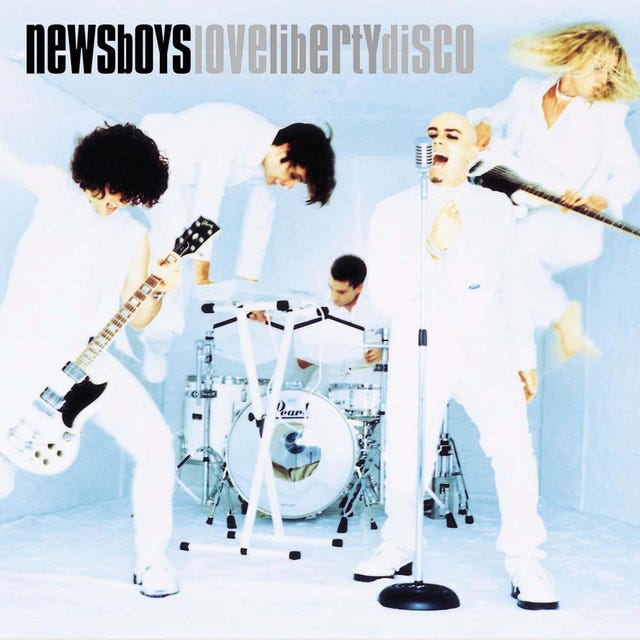
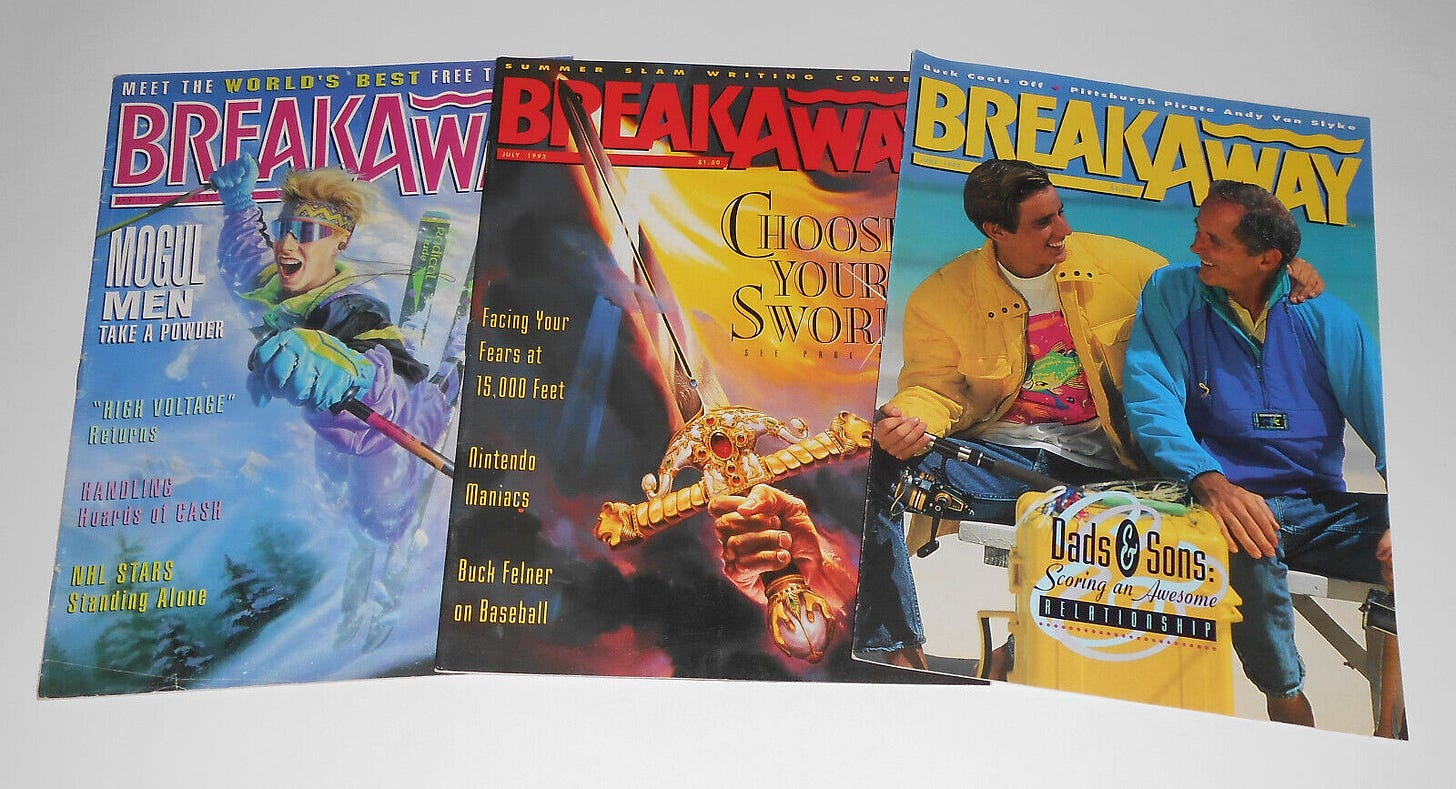
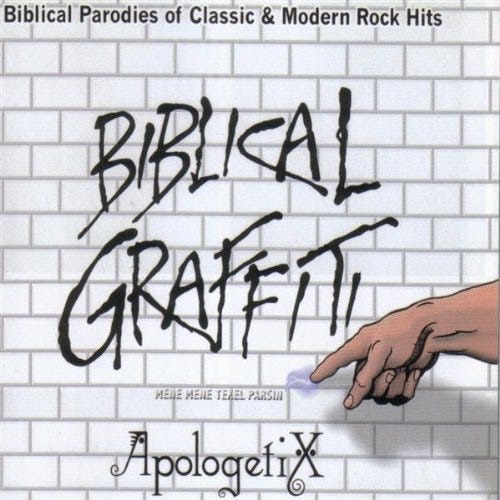
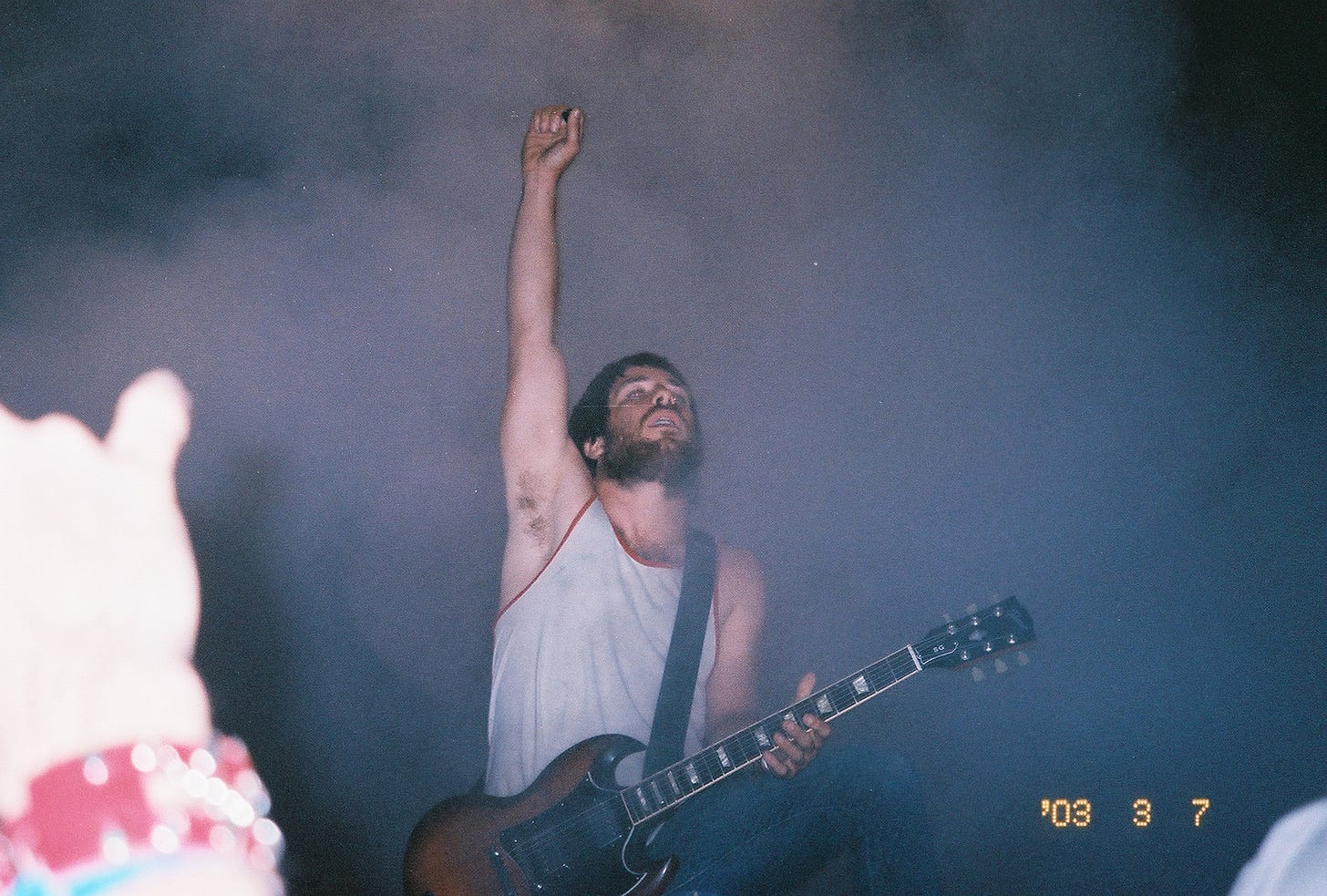
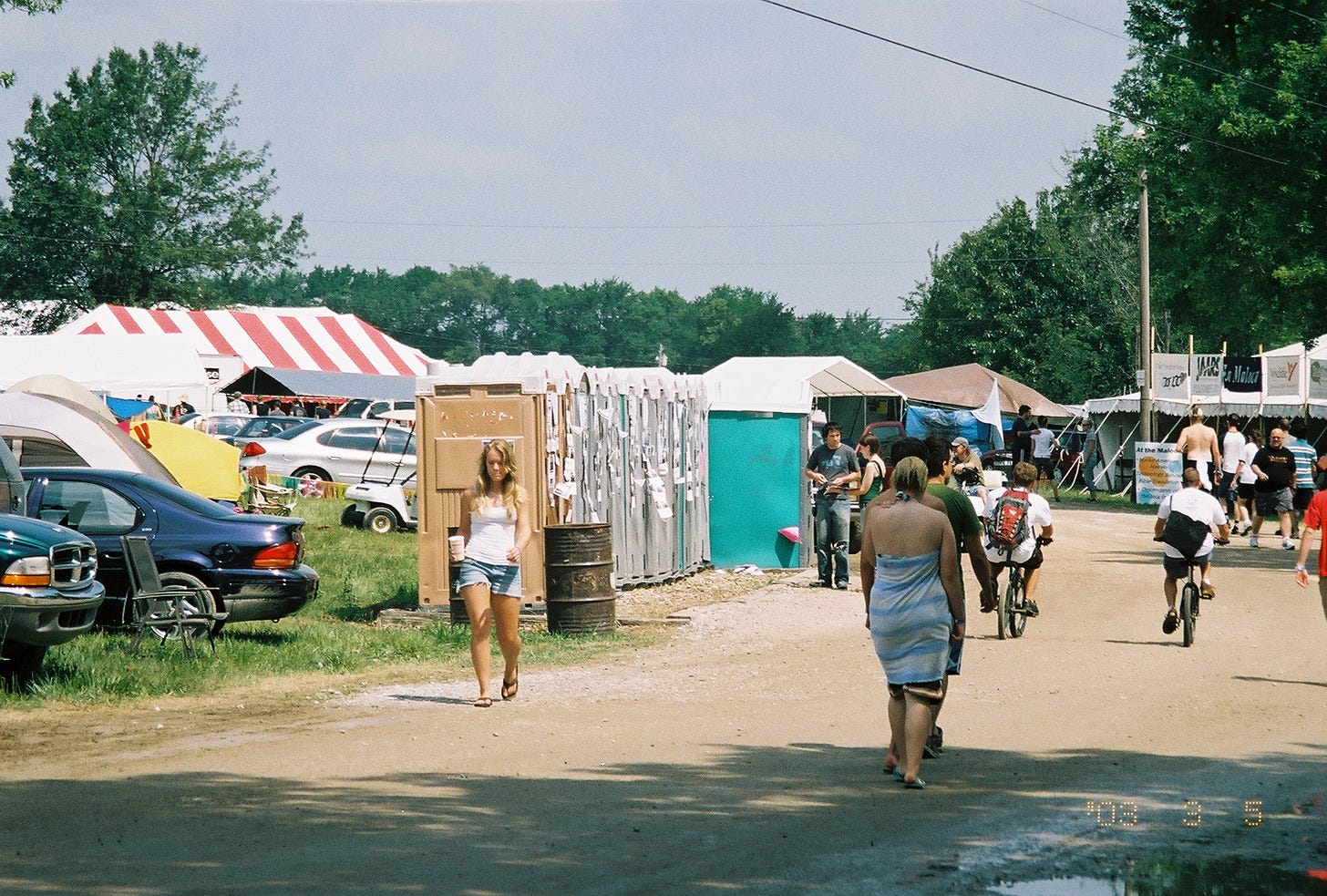
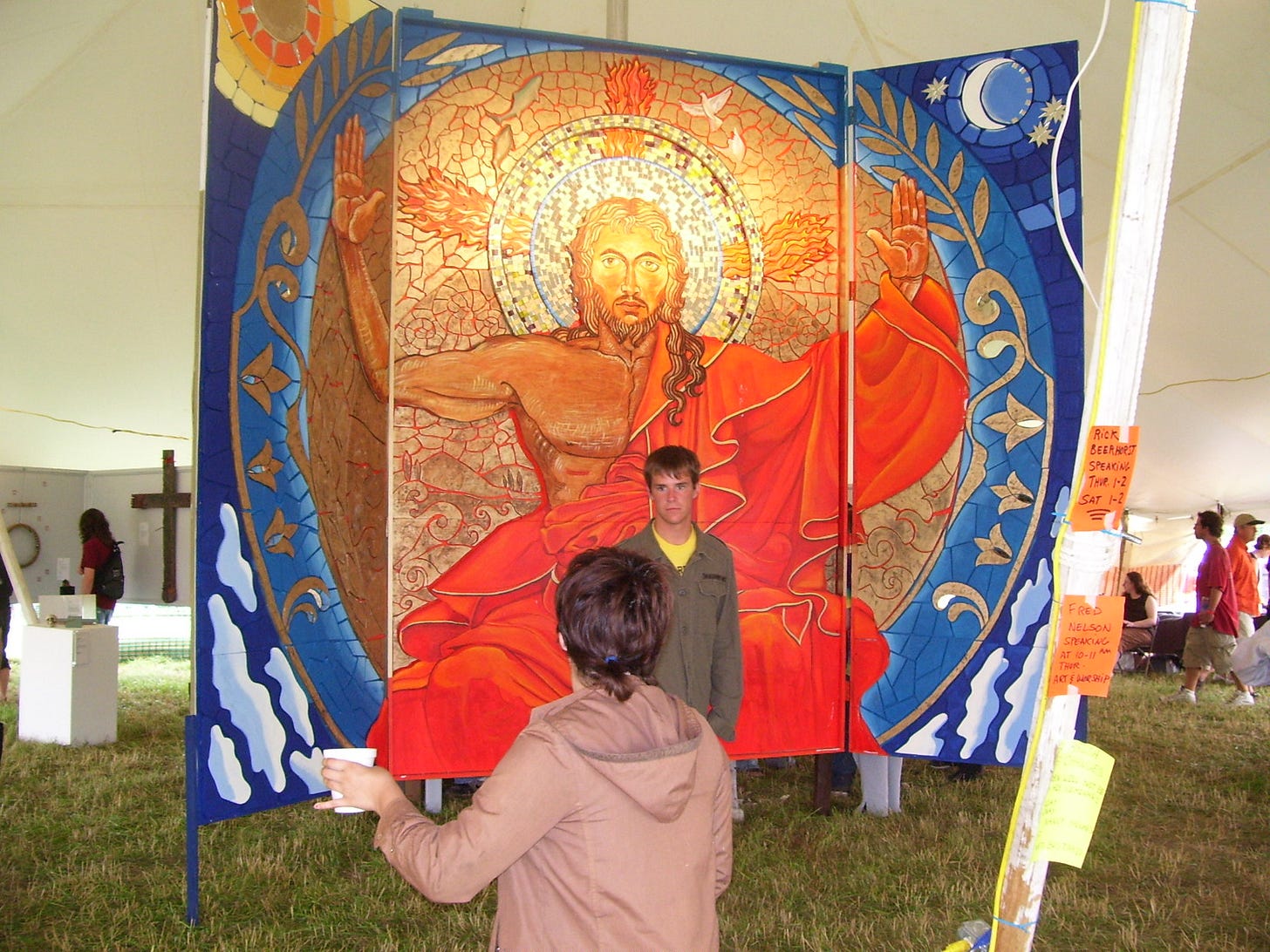
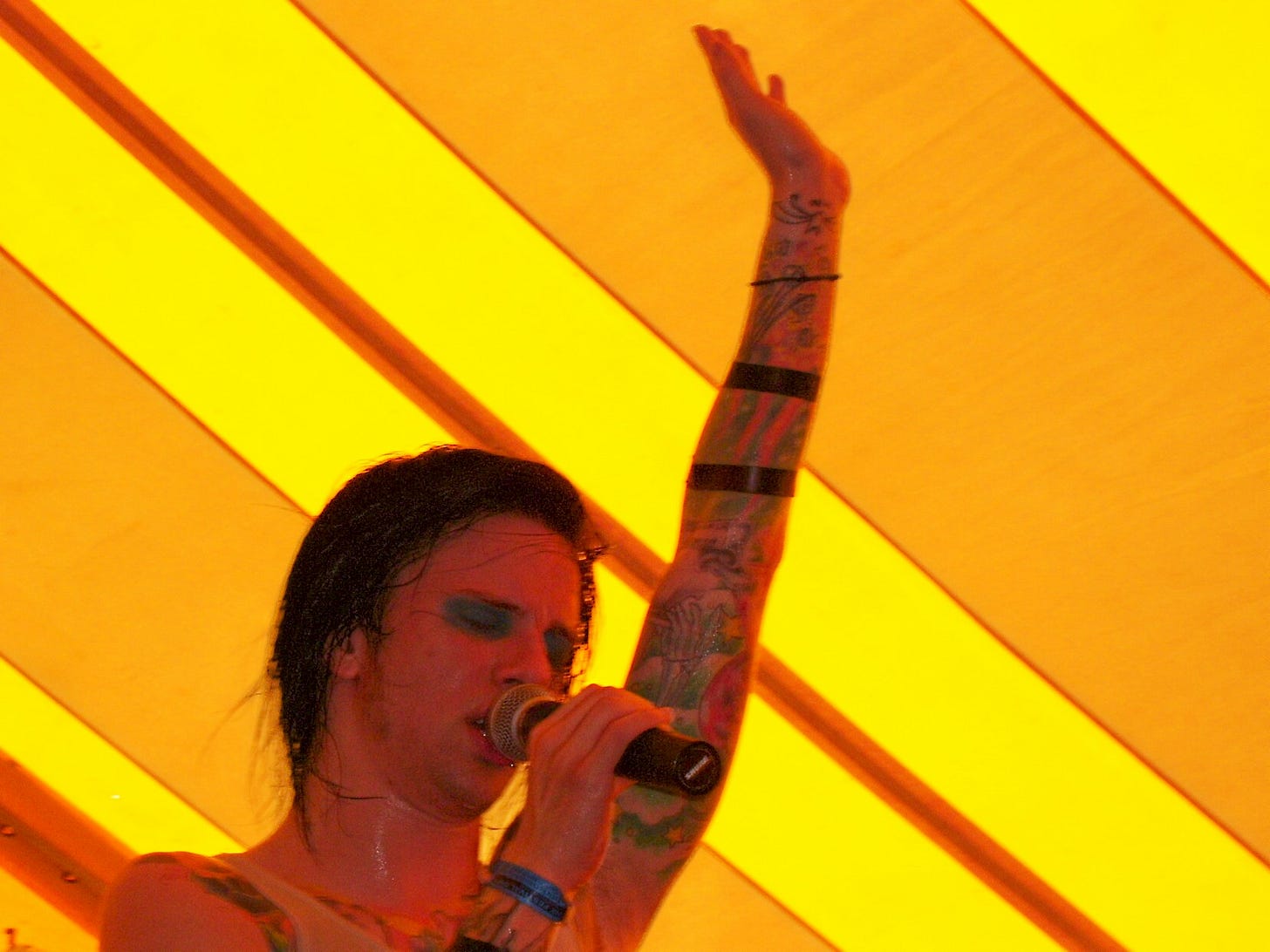
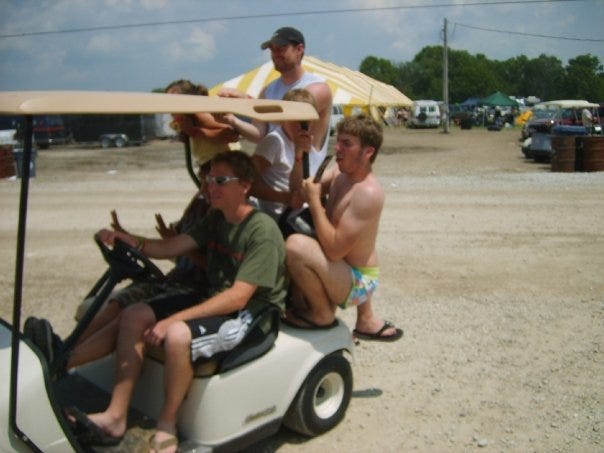
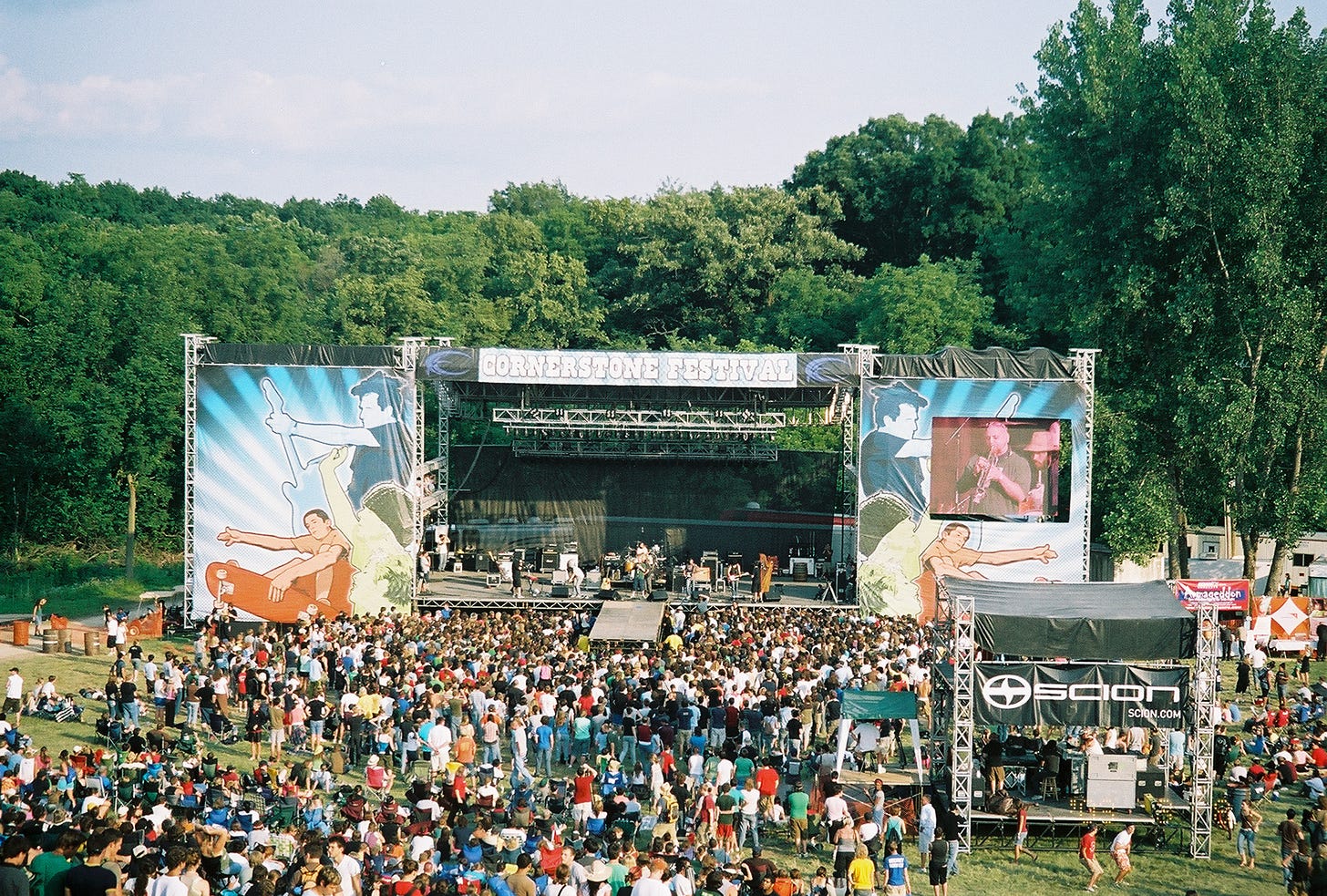
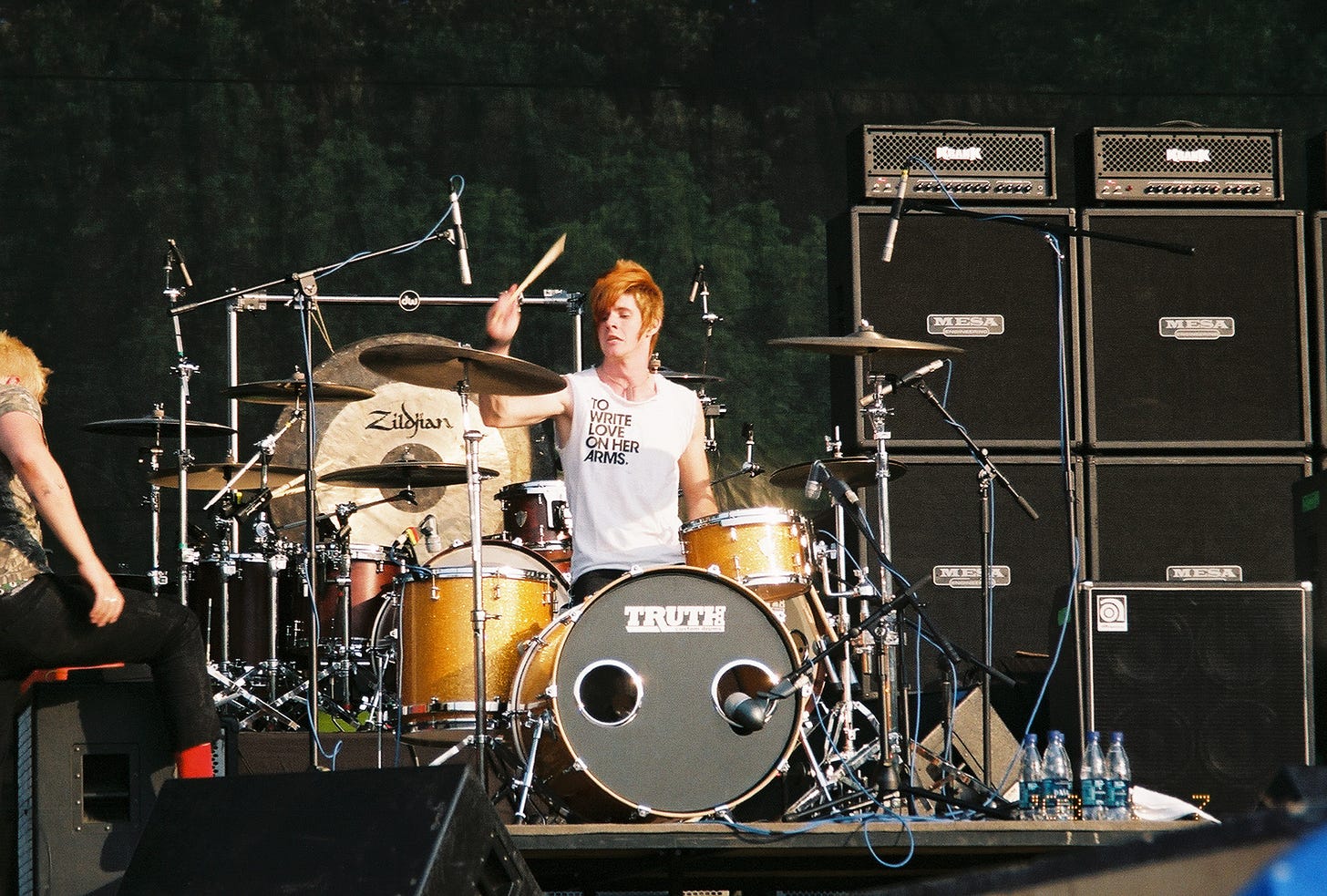

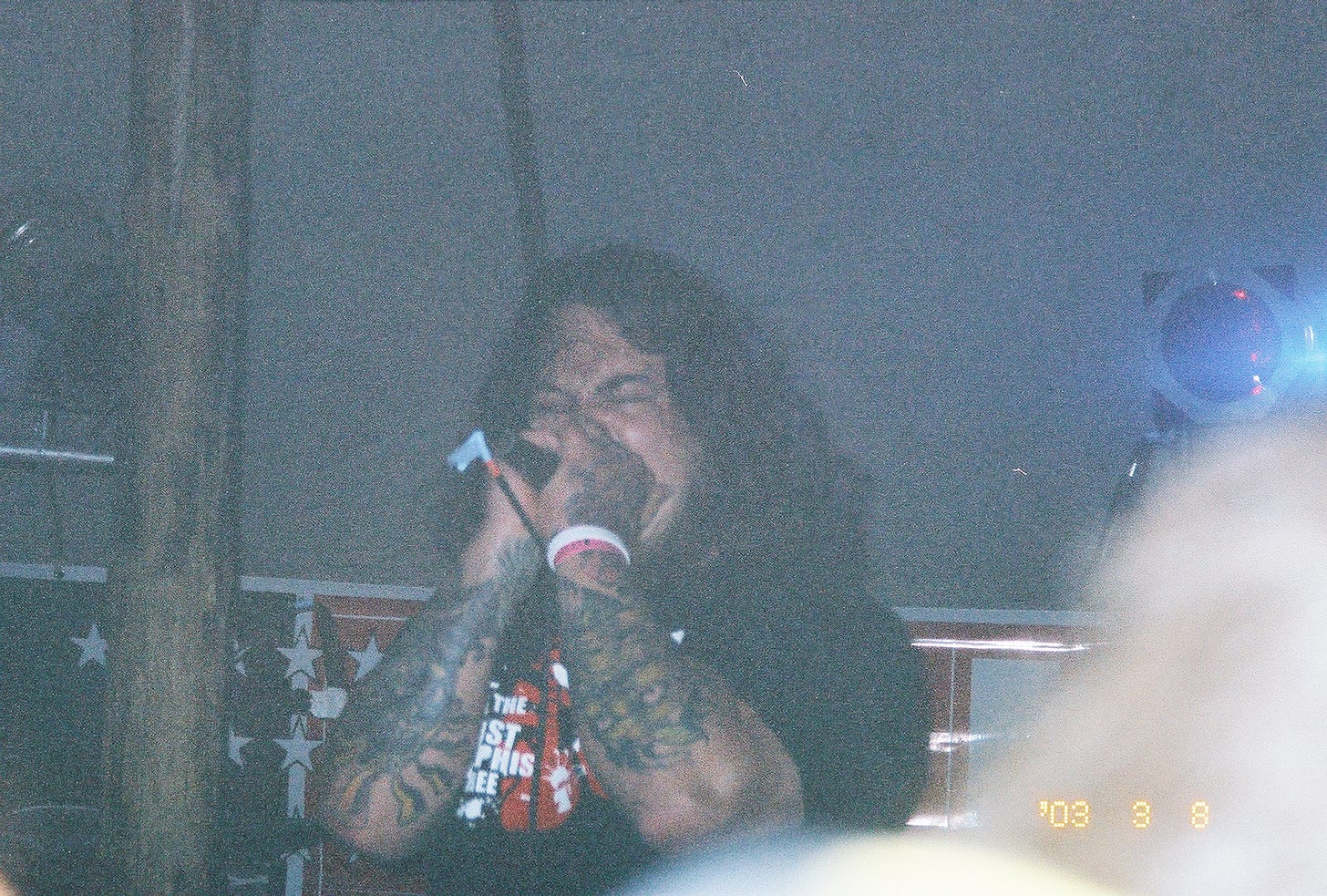
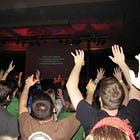
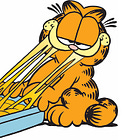

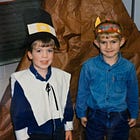
Also, how have I never seen that golf cart photo before? It's amazing
One of my favorite essays you've written so far. That Demitri Martin quote made me laugh out loud. I've always enjoyed hearing your Cornerstone stories, and I relate so much to your stories of Christian music in the 90s and early 2000s.